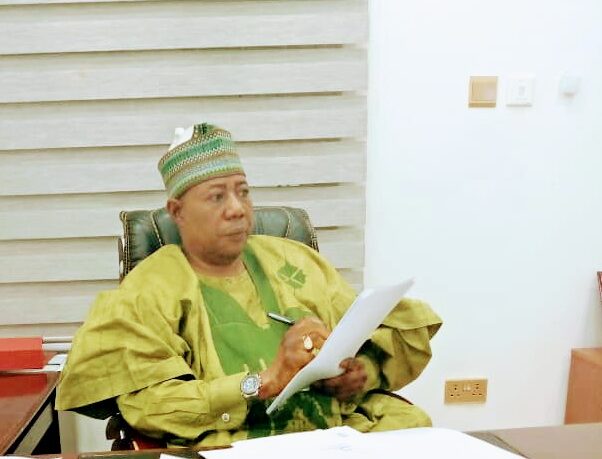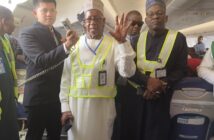The recent incident at Tudun Biri village in Igabi local government area of Kaduna State, in which a Nigerian army drone misfired, causing tragic loss of life, has understandably sparked deep emotions and ignited a complex discourse that has jolted me out of my annual vacation. I have been compelled to come out of my cocoon to address this critical issue of national debate in my fatherland, instead of fiddling like Nero while Rome was on fire.
While the grief and pain of the affected families are profound, it is critical to approach this situation with a balanced perspective, acknowledging government’s response to the Tuden Biri tragedy and at the same time emphasizing the need for constructive solutions.
Amidst the tragedy, President Bola Tinubu and Vice President Kashim Shettima have demonstrated genuine leadership, prioritizing the needs of the affected community. Their swift actions, including visits to the site, personal interactions with victims, and decisive steps towards rebuilding the village, stand in stark contrast to past approaches.
The immediate response to the incident set a new standard. Immediately the incident occurred, the governor of Kaduna State, Senator Uba Sani swiftly convene the State Security Council meeting. This was followed by the visit of the General Officer Commanding (GOC), First Mechanised Division Kaduna. Other high-profile officials of government that have paid visit to Tudun Biri village are National Security Adviser (NSA), Mallam Nuhu Ribadu, Chief of Defence Staff, General Christopher Musa; Chief of Army Staff, Lt. General Taoreed Lagbaja; Minister of State for Defence, Bello Muhammad Matawalle.
All these culminated in Thursday’s visit of Senator Kashim Shettima in a manner we have never seen of a Vice President of Nigeria before. After visiting the victims of the drone misfire at the Barau Dikko Teaching Hospital in Kaduna State where some of the casualties, most of whom are women and children, are receiving treatment, the VP gave marching orders to the Management of the National Emergency Management Agency (NEMA) to mobilise and provide adequate support to the victims of the tragedy in Tudun Biri village.
Shettima’s visit to the hospital, personally tending to the injured and consoling families, showcased his genuine empathy and compassion. This personal touch resonated deeply with the affected community, demonstrating a leadership that goes beyond mere words.
President Tinubu’s decision to rebuild Tudun Biri is a testament to the government’s commitment to tangible solutions. The Fulako Initiative, with its comprehensive package of houses, clinics, schools, and empowerment initiatives represents a proactive approach towards not only rebuilding the physical infrastructure but also revitalizing the community’s spirit.
This initiative goes beyond mere compensation; it recognizes the need for long-term development and sustainable growth. By prioritizing education, healthcare, and economic opportunities, the government aims to empower the community and prevent future tragedies.
While the government’s response deserves recognition, it is crucial to acknowledge the harmful role played by misinformation and political opportunism. Certain groups, with vested interests, have exploited this tragedy for their own gain, peddling negativity and fueling distrust.
It is vital to distinguish between legitimate concerns and deliberate manipulation. The focus should remain on constructive solutions, not furthering division or undermining the government’s efforts.
To put it succinctly, the Tudun Biri tragedy serves as a stark reminder of the inherent risks associated with military operations. However, it also presents an opportunity for collective action and unity. By supporting the affected families, contributing to the rebuilding efforts, and fostering a spirit of understanding and cooperation, we can ensure that such incidents never happen again.
One wonders, therefore, why certain human rights groups, notorious for their tendency to criticize the Tinubu administration regardless of the context, have seized this opportunity to paint the government in a negative light. While their concerns are legitimate, their unwavering focus on negativity and disregard for the government’s proactive response fosters distrust and exacerbates the situation.
Secondly, certain politicians have shamelessly capitalized on this tragedy to score cheap political points. By exploiting the emotions of the grieving families and the anger of the community, they seek to advance their own political ambitions, further fracturing the already strained social fabric.
Furthermore, the widespread dissemination of misinformation has further complicated the situation. Unverified information and inflammatory rhetoric circulating on social media have fueled paranoia and distrust, hindering efforts towards healing and reconciliation.
It is imperative to recognize that military misfires, unfortunately, are not uncommon in the context of war and conflict. Throughout history, numerous such incidents have occurred, highlighting the inherent risks associated with military operations. While the loss of life is always tragic and deeply regrettable, it is essential to distinguish between deliberate attacks and unintentional misfires.
The international community also exhibits examples of friendly fire incidents. During the US wars in Afghanistan and Iraq, numerous friendly fire casualties occurred. Similarly, historical accounts like the Battle of Barnet in 1471 demonstrate that misfires can occur even in conflicts long past.
In the aftermath of the Tudun Biri tragedy, it is crucial to channel our collective energy towards constructive solutions. We must prioritize efforts to support the bereaved families, rebuild the village and ensure that such incidents never transpire again. This necessitates a collaborative approach, one that prioritizes truth over misinformation, compassion over opportunism and unity over division.
Let us not allow this tragedy to define our future. Instead, let us rise above the negativity and come together as a nation to heal the wounds, rebuild lives and pave the way for a brighter tomorrow. This requires a collaborative approach, where compassion, truth, and unity prevail over opportunism, misinformation, and division.
The actions of President Tinubu and Vice President Shettima offer a beacon of hope in a difficult time. Their unwavering commitment to the people of Tudun Biri and their dedication to building a better future deserve our acknowledgment and support. By channeling our collective energies towards constructive solutions, we can ensure that this tragedy becomes a catalyst for positive change and lasting unity.
The National Security Adviser, NSA Ribadu) has been working round the clock to avoid future recurrence of the Tudun Biri drone misfire. This entails that in the coming days, emergency meetings should be summoned for all national law enforcement agencies as a matter of public urgency to determine a new direction that would never again avail political propagandists and merchants of mischief the opportunity to politicise matters of national security.
The anti-corruption agencies must also give impetus to the ongoing efforts by prosecuting fraudulent cabals that use looted public resources to create tension, aide and abet crimes. If these measure are not taken, they will still come up with another mischievous plans to undermine the Renewed Hope Agenda of the Tinubu administration.
May the souls of those who lost their lives rest in perfect peace. May the Almighty God bless our country Nigeria. On this note, I retire back to my annual vacation.
– Ibrahim is Director, Communication and Strategic Planning, of the Presidential Support Committee (PSC).



